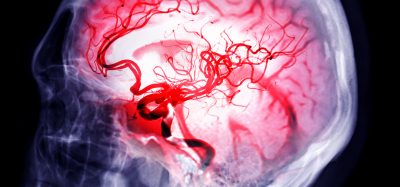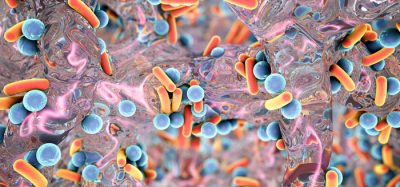RICTOR/mTORC2 pathway inhibition could make chemotherapy more effective
Posted: 14 January 2020 | Hannah Balfour (Drug Target Review) | No comments yet
Research indicates that activation of the RICTOR/mTORC2 pathway advances cancer metastasis and suggests that inhibiting this signalling may make chemotherapy more effective against colon cancer.


A study has identified a new pathway (RICTOR/mTORC2) that could be targeted to make chemotherapy more effective in treating colon cancer. Targeted inhibition of RICTOR or the mTORC2 pathway could be used in combination with chemotherapy to treat the condition.
“Identification of biological targets to enhance sensitivity to chemotherapy is becoming a priority for effectively treating cancers to reduce toxicities caused by chemotherapy or to overcome resistance,” explained corresponding author Dr Sam Thiagalingam, associate professor at Boston University School of Medicine (BUSM), US.
…chemotherapy treatments for colon and other cancers with deficient SMAD4 function would be more effective when combined with targeted inhibition of RICTOR/mTORC2 pathway”
In previous research, Dr Thiagalingam and colleagues identified that SMAD4 acts as a metastasis suppressor, blocking the interactions between transcription factors that promote metastatic cancer progression. They observed that SMAD4 gene mutations correlated to advanced stages of colon cancer. In cell culture, they also showed that loss of (or low) SMAD4 expression is associated with poor response to 5-fluorouracil, the backbone of almost all chemotherapy combinations used in the treatment of metastatic colon cancer.
Thiagalingham said of the new study, published in Molecular Cancer Research: “We found for the first time that SMAD4 interacts with RICTOR to suppress mTORC2 functionality and therefore the loss of SMAD4 function results in oncogenic activation of the mTORC2 pathway, leading to enhancement in metastatic colon cancer progression and resistance to chemotherapeutic agents.”
According to the team, this study suggests that chemotherapy treatments for colon and other cancers with deficient SMAD4 function would be more effective when combined with targeted inhibition of RICTOR/mTORC2 pathway.
SMAD4 deficiency is not isolated to colon cancer; it is also linked to poor prognosis in gliomas and pancreatic, prostate and lung cancers. Thus, this study may have wide-reaching implications for treatments in these diseases, claim the researchers.
Related topics
Chemotherapy, Drug Targets, Oncology
Related conditions
Colon cancer, Glioma, Lung cancers, Pancreatic cancer, Prostate cancer
Related organisations
Boston University School of Medicine (BUSM)
Related people
Dr Sam Thiagalingam








